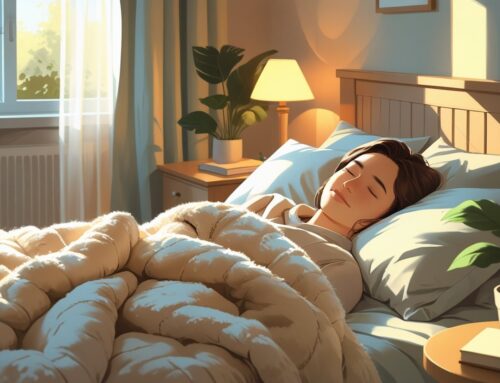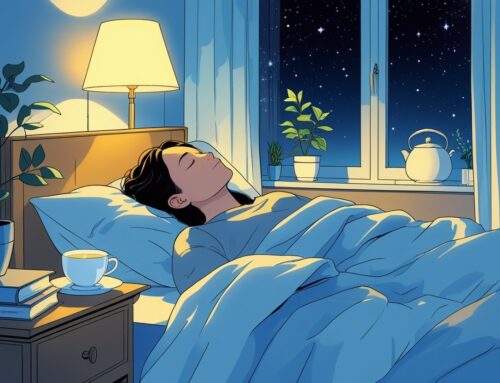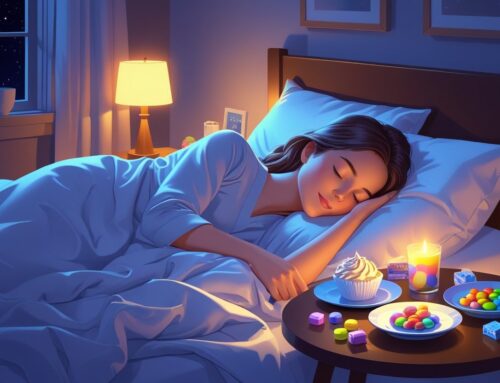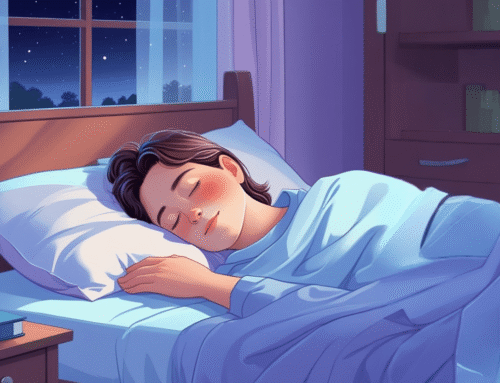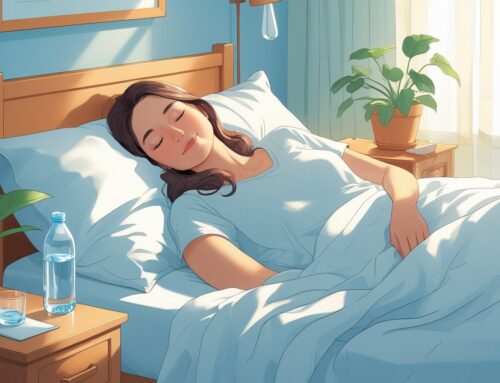Most teenagers need about 8 to 10 hours of sleep each night. Six hours isn’t enough. It can make them feel tired, distracted, or irritable. If they keep missing sleep, it can affect how they grow, do in school, and feel overall.
Many teens don’t get enough sleep because school starts early, their schedules are packed, and they spend a lot of time on their phones or laptops. Knowing how much sleep they really need can help both teens and parents make better choices. A teenager’s sleep also depends on things like how quiet or dark their room is, or whether their bed is comfortable. These things matter too, not just how long they sleep.
Getting enough rest isn’t always easy, but small changes can help. And the more teenagers understand why sleep matters, the easier it is to make it a priority.
Key Takeaways
- Teenagers typically need more than 6 hours of sleep to stay healthy.
- Poor sleep can affect mood, focus, and long-term well-being.
- Better sleep habits and an improved sleep environment support healthier rest.
- Teenagers sleep better on mattresses that support their growing bodies, which leads to improved focus, energy, and emotional balance.
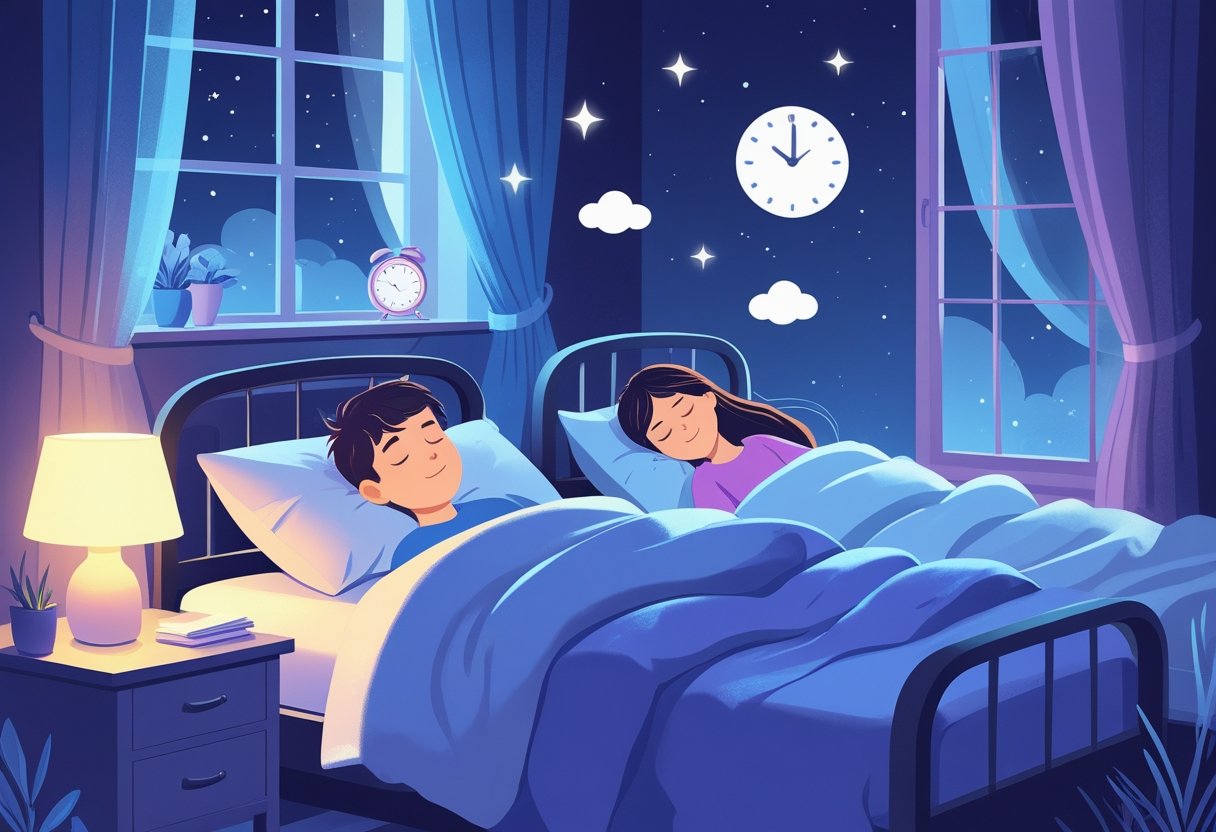
How Much Sleep Do Teenagers Need?
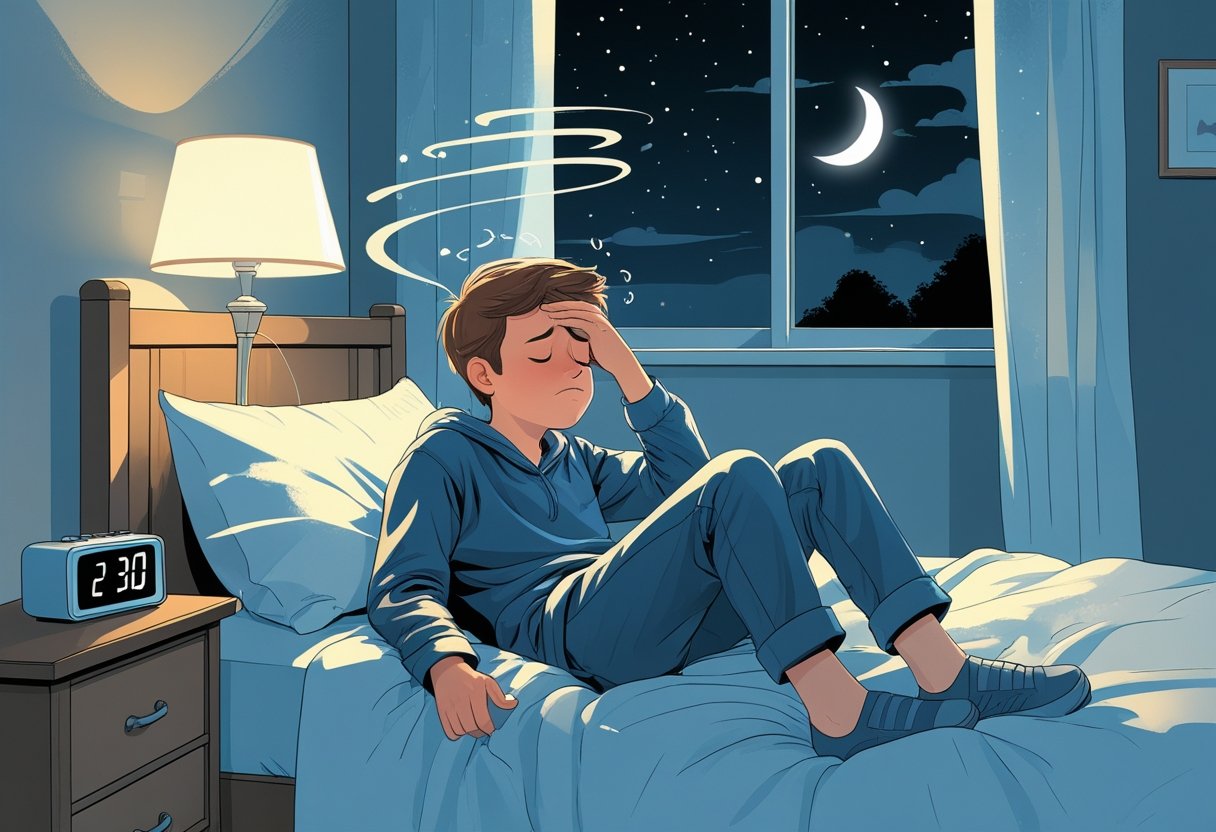
Teenagers need a specific amount of sleep to support their growth, learning, and overall health. Compared to adults and younger children, they require more rest due to the unique demands of adolescence.
Recommended Sleep Duration for Teens
Most experts agree that teenagers should sleep between 8 to 10 hours each night. A 15-year-old, for example, typically needs this range to stay alert and healthy throughout the day. Regularly getting less than 7 or 8 hours can affect their mood, concentration, and physical health.
Some sources suggest aiming for 9 to 9½ hours to fully support brain development and emotional stability. Still, nearly half of teens fall short of these recommendations. The gap between what they need and what they get often results in academic struggles and behavior issues.
Age Group and Recommended Sleep Hours per Night
- 6–12 years: 9 to 12 hours
- Teens (13–18): 8 to 10 hours
- Adults (18+): 7 to 9 hours
How Sleep Needs Change During Adolescence
As kids move into their teenage years, their sleep patterns shift. Biological changes delay their internal clock, so they tend to fall asleep later and prefer sleeping in the next morning. During this time, the brain develops rapidly, especially in areas tied to learning and memory. Sleep becomes crucial not just for cognitive function but also for emotional balance and physical growth.
Despite needing more rest, many teens sleep less due to social obligations, heavy schoolwork, and early class times. This mismatch leads to long-term sleep loss, which can affect both mental health and academic performance.
Is 6 Hours of Sleep Enough for a Teenager?
Six hours of sleep is less than what most teens need for good health and daily function. Too little sleep affects energy, mood, and learning. Knowing how much sleep is ideal helps build better habits and prevent issues.
Comparing 6 Hours to the Recommended Amount
Most experts agree that teenagers need between 8 to 10 hours of sleep each night. Getting only six hours means teens miss out on 2 to 4 hours of rest, which adds up quickly and creates sleep debt. This can lead to tiredness, poor concentration, and weaker memory. Studies also show that many teens don’t meet the recommended sleep range, which may impact their school performance and emotional health.
Is 7 Hours of Sleep Sufficient for Teens?
Seven hours is closer to the minimum but still doesn’t meet the ideal range. Some teens might feel okay with that amount, but most need more to function at their best.
An extra hour of sleep improves alertness and cuts down on daytime drowsiness. Still, seven hours may not fully support growth, immune strength, or emotional balance. For most teenagers, aiming for at least eight hours helps boost focus, learning, and overall well-being.
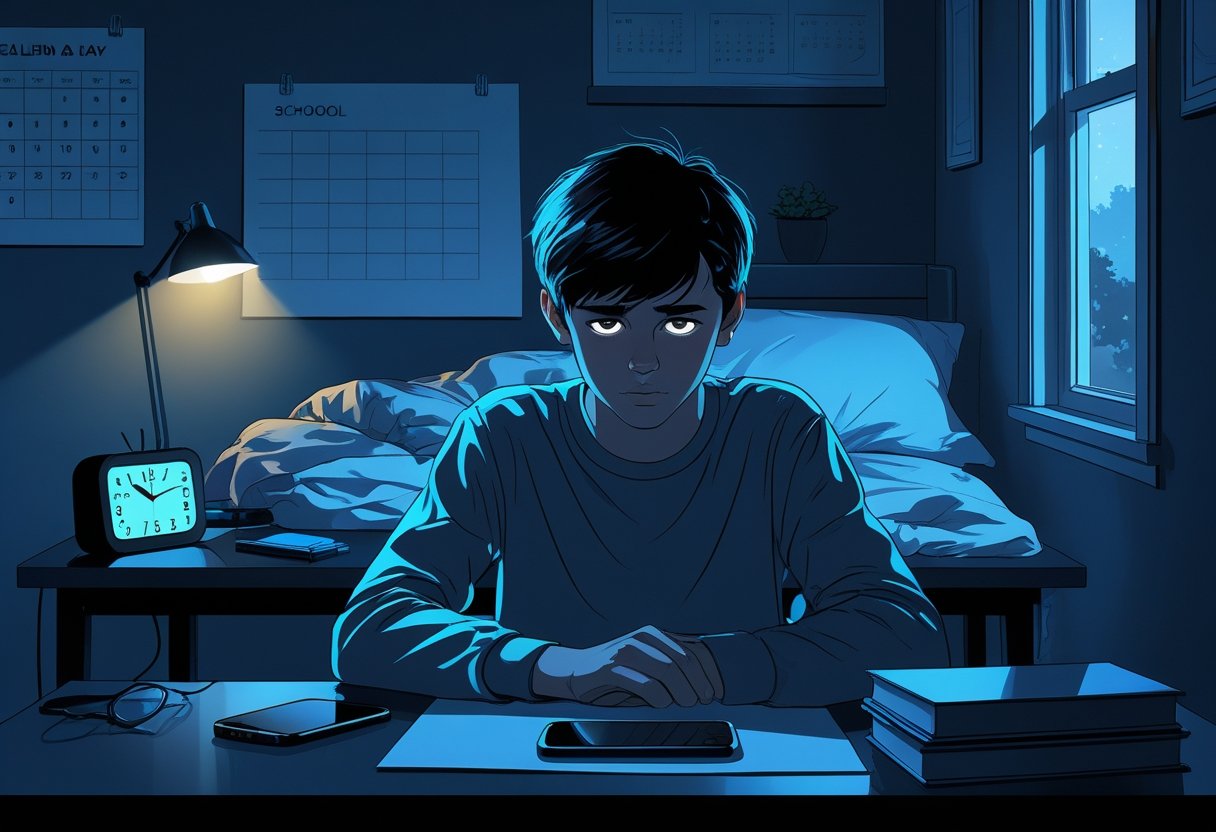
Consequences of Insufficient Sleep in Teenagers
Not getting enough sleep affects many parts of a teenager’s life. It harms the body, slows thinking and learning, and increases the risk of mental health problems. These effects build up over time when sleep deprivation continues.
Physical Health Effects
When teens miss out on sleep, their bodies take a hit in several ways. A weak immune system makes it easier to catch colds and infections. Sleep loss also disrupts hormones that regulate hunger and metabolism, raising the risk of weight gain and obesity.
Chronic sleep deprivation can lead to health problems like high blood pressure and type 2 diabetes. It may also stunt physical growth since the body repairs tissues and muscles during deep sleep. Tired teens tend to have lower energy levels, which reduces physical activity and affects overall health.
Impact on Cognitive Performance
Teens running on too little sleep often struggle with memory, focus, and decision-making. Without enough rest, the brain fails to store information properly, slowing learning and problem-solving.
Studies show that teens who sleep fewer than six hours a night perform worse in school and take longer to finish tasks. Slower reaction times increase the risk of accidents, especially behind the wheel. These effects highlight how vital sleep is for the developing brain.
Emotional and Mental Health Risks
Lack of sleep affects mood and mental well-being in teens. Teens become more irritable, stressed, and anxious. Sleep deprivation links to higher rates of depression and can make existing mental health issues worse. Research shows that teens who sleep less than eight hours face a greater risk of suicidal thoughts and attempts. This connection underscores the serious impact of poor sleep on emotional well-being.
Quality sleep helps teens manage emotions and face daily stress more effectively, which lowers the risks to their mental health.
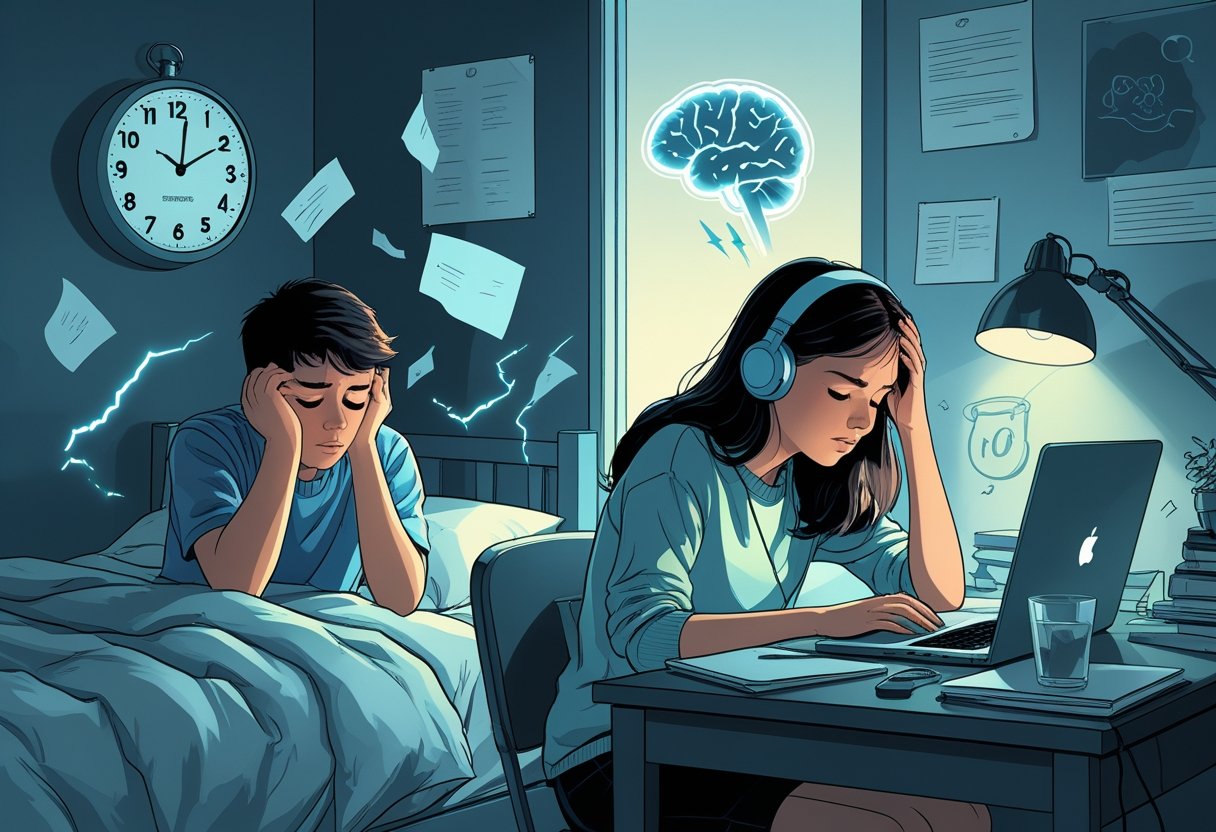
Why Do Teenagers Struggle to Get Enough Sleep?

Teenagers usually struggle to get enough sleep because both their biology and daily routines work against early bedtimes. Changes in their bodies make them feel alert later at night, while schoolwork and social obligations keep them up even longer.
Biological Sleep Patterns in Adolescence
As kids enter adolescence, their internal clocks shift. They stop feeling tired around 9 or 10 p.m. and instead feel wide awake until 11 p.m. or later. This change stems from delayed melatonin production, the hormone that signals sleep. This natural change is called “sleep phase delay.” It means teens might sleep later in the morning if allowed. Unfortunately, early school start times force many to wake up before they get enough rest.
This mismatch explains why teens stay up late and drag through early mornings. Despite appearances, six hours isn’t enough. They need about 8 to 10 hours of sleep to stay sharp and healthy.
Behavioral and Social Factors
Academic pressure, social media, and extracurricular activities often push teens to stay up even later. Screens in particular expose them to blue light, which blocks melatonin and delays sleep even more. Add in family responsibilities and part-time jobs, and it’s no surprise teens sacrifice sleep. Many choose homework or late-night chats with friends over rest.
When biology collides with lifestyle, sleep suffers. As a result, teens often face problems with focus, mood, and overall well-being.
Strategies to Improve Teen Sleep Duration
Teens can improve sleep by changing daily habits and creating a better sleep environment. Clear routines and a calm bedroom help the body relax and prepare for rest. When issues persist despite these efforts, professional support may be necessary.
Establishing Consistent Sleep Routines
A regular sleep and wake schedule is essential for teens. Going to bed and waking up at the same time each day sets the body’s internal clock and improves both sleep quality and duration.
Teens benefit from winding down an hour before bed. Avoiding screens and choosing calming activities like reading or light stretching helps signal that it’s time to rest. Cutting off caffeine after mid-afternoon also makes it easier to fall asleep. Alarms or gentle reminders can help teens stick to their schedule, even on weekends. Consistent routines reduce disruptions and make it easier to reach the recommended 8–10 hours of sleep.
Optimizing Sleep Environments
The bedroom should stay quiet, dark, and cool for better sleep. Bright lights and noise interrupt the sleep cycle and reduce overall rest. Technology, especially phones and tablets, should stay out of the bedroom. Light from these devices suppresses melatonin, which is essential for falling asleep.
Comfortable bedding, including a good mattress and pillows, makes a difference. A tidy and peaceful space signals the brain to unwind. Keeping the room between 60–67°F (15–19°C) supports deeper and more restful sleep.
When to Seek Professional Help
If a teen gets fewer than six hours of sleep most nights despite good habits, it might signal a medical issue. Ongoing fatigue, trouble falling asleep, or mood swings call for a medical checkup. Doctors can evaluate for conditions like sleep apnea or restless leg syndrome that affect rest. Treatment might include therapy, medication, or changes in behavior.
Families should seek help when poor sleep begins to affect school, mood, or safety. Early support can improve long-term health and help teens function better each day.

How a Good Mattress Supports Teenagers’ Sleep Needs

A good mattress is essential in helping teenagers get the deep and restful sleep they need. Teens usually require 8 to 10 hours of sleep each night to support healthy brain and body development. Without proper support, their sleep suffers, which can lead to fatigue, poor focus, and low energy during the day.
Spinal alignment is also important. Since teens are still growing, a mattress that supports the back properly prevents aches and posture problems. One that is too soft or too firm can disrupt alignment and cause restless nights. If a mattress feels uncomfortable, teens may delay bedtime or struggle to fall asleep, which reduces total rest. A supportive mattress helps them fall asleep faster and stay asleep longer.
Some features to consider in a teen’s mattress include:
- Medium firmness for a balance of comfort and support
- Breathable materials to regulate temperature
- Durable construction to handle growing bodies over time
The Dreamfoam Essential mattress provides an excellent balance of support and comfort. Its customizable firmness suits growing teens, while the gel-infused cooling foam helps regulate temperature to avoid overheating. This mattress also adapts to changing body shapes, which makes it a durable choice as teens grow.
Its open cell technology is designed to keep sleepers comfortable throughout the night. Choosing the right mattress can improve sleep habits and positively influence attention, memory, and mood. Better sleep also reduces stress and supports healthy physical development during the teen years.
Frequently Asked Questions
Sleep needs vary during the teenage years. The amount of rest teens get directly affects their daily performance, overall health, and growth.

